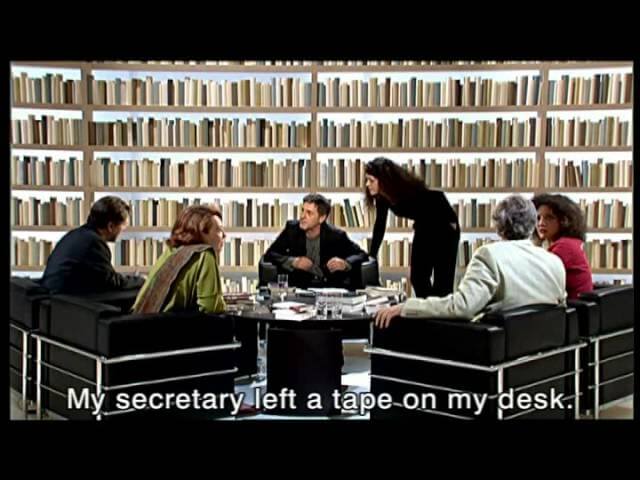Michael Haneke's mysterious Caché turns the establishing shot into an act of violence

Watch This offers movie recommendations inspired by new releases or premieres, or occasionally our own inscrutable whims. This week: As a new Juliette Binoche movie, Let The Sunshine In, begins its theatrical run in the States, we remember other highlights from the career of this world-class actor.
Caché (2005)
Among its many other virtues, Michael Haneke’s 2005 mystery Caché is an eminently re-watchable film. I just completed what must’ve been my fourth trip through it, and each time it’s revealed something new. Haneke’s always had a restrained directorial touch, letting his scenes play out in long, leisurely takes, but until Caché, he had been something of a maximalist dramatically, filming scenes of jarring fourth-wall-breaking and stomach-churning violence and in-the-red human despair with the same unblinking resignation. But, with the exception of its one sudden spasm of blood, Caché’s violin-taut tension is created largely in the viewer’s mind, through uncertainty about what’s being watched. It starts with the very first scene of the movie, which seems to be an establishing shot until it begins rewinding, creating a textual tension that lingers long afterward. Haneke continues using the same shot and others like it, each time begging the question of whether we’re watching the invasive surveillance being used to terrorize the Laurent family or the director’s own establishing and transitional footage of Paris. If Haneke’s 1997 film Funny Games made the viewer complicit in the onscreen violence, in Caché he himself becomes the terrorist, setting his unblinking gaze upon the family and then showing them the results.
I am not, to be clear, proposing that Haneke himself is the source of the film’s tapes. That subject has been debated to death—you could lose an afternoon just reading Roger Ebert’s tussle with the evidence, a Sisyphean ordeal that continues with elaborate exegeses in his comments section. Many of Haneke’s films are built upon some mystery, and they seem (unlike, say, David Lynch’s mystery boxes) tantalizingly knowable. The evidence seems all at hand in Caché, which concludes with a final shot that seems to lock everything in place, if you catch the right details—until you start to really obsess over it, that is. I have chosen not to, with each new viewing of the film, in part because instead it provides so much else to chew on. In 2005, it seemed an abstract commentary on terrorism, surveillance, and even American bullishness, with Maurice Bénichou’s Majid the tragic victim. Viewed today, I found myself focusing instead on the journalist Georges (Daniel Auteuil)—surrounded in home and at work by videotapes, himself a glorified voyeur. By the end of the film he is a vision of privilege, doddering around his cushy home in a plush bathrobe, zeroing out his guilt with sleeping pills. I am almost ashamed to admit that his character has seemed to me, in previous viewings, sympathetic.
He is not, and no one shows him less pity than his wife, played with uncompromising intelligence by Juliette Binoche. Haneke has said he wrote the characters specifically for her and Auteuil, and their interplay is the movie’s beating heart. Not that there’s much passion there; it seems a sort of professional and social arrangement, and as Auteuil’s hang-dog performance grows more miserable, quicker to lie and equivocate, those around him grow bolder, more certain with the truth. Binoche’s gaze pierces his bullshit as he begrudgingly admits his suspicions about who may be sending the tapes, and by the end of the film she’s largely responding to him only with more questions, with patience and assertion, demanding a truth he refuses to provide. The film acts much the same way, no matter how often you watch it, no matter how many questions you throw at it. Haneke’s weaponized camera stares on, unyielding, gaining some new malevolent power with each passing second. Watching, but revealing nothing.
Availability: Caché is available to rent or purchase through the major digital services. It can also be obtained on Blu-ray or DVD through Netflix, Amazon, or possibly your local video store/library.